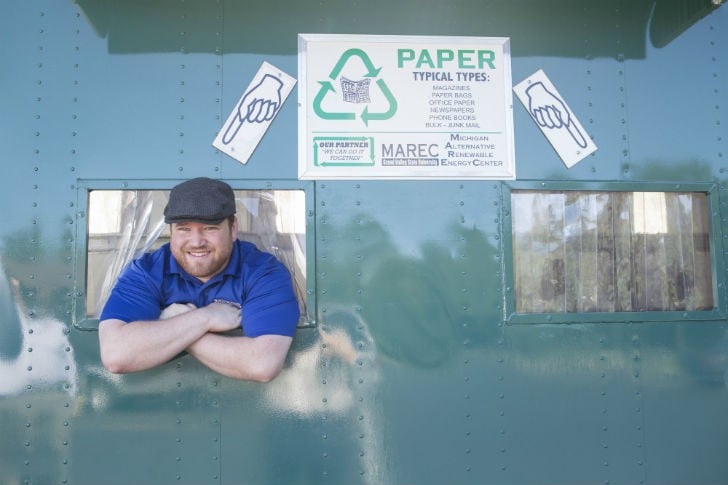Prototype of portable recycling centre for rural applications uses solar power

A prototype of a portable rural recycling center that's powered by renewable energy and dramatically reduces operating costs has been completed through a partnership between Hastings Township, Michigan and Grand Valley State University.
The prototype unit is a fully functional recycling center that can be trucked to rural locations where curbside recycling pickup is not cost-efficient, as well as places where a central transfer station is too far away for some residents to make the trip.
"What we've put together, in partnership with Hastings Township officials, is a portable recycling center that can be duplicated and placed in rural and remote locations," said Nick Baine, assistant professor of engineering at Grand Valley. "It's efficient because it runs on solar power and recycled batteries, and minimizes operational costs because township staff can use remote cameras to see exactly when the recycling bins need to be emptied."
The prototype currently sits in the parking lot of the Hastings Township Hall, and is essentially a used semi trailer, with some important modifications. Windows and doors were cut into the sides to allow for recyclable materials to be dropped off, and it has four solar panels installed on the roof. The panels allow the center to be completely self-sufficient so they can be placed in spaces where there are no power lines.
The solar panels send power through a system to the bank of batteries inside the unit, which allows lights and security systems to continue to work at night or on cloudy days.
The power bank is made of post-vehicle-application lithium-ion batteries, which are commonly found in newer hybrid and electric vehicles, and can power the recycling center for up to three days without sunshine.
Grand Valley’s Michigan Alternative and Renewable Energy Center, or MAREC, was also part of the project. MAREC program manager Kim Walton worked with the township for three years in the planning stages of the project and worked with a solar installer to design parts of the system. MAREC will collect data on the unit.
The GVSU portion of the project has been funded by the U.S. Department of Transportation’s Research and Innovation Technology Administration University Transportation Centers program, through the Mineta National Transportation Research Consortium with matching funds provided by Grand Valley.



